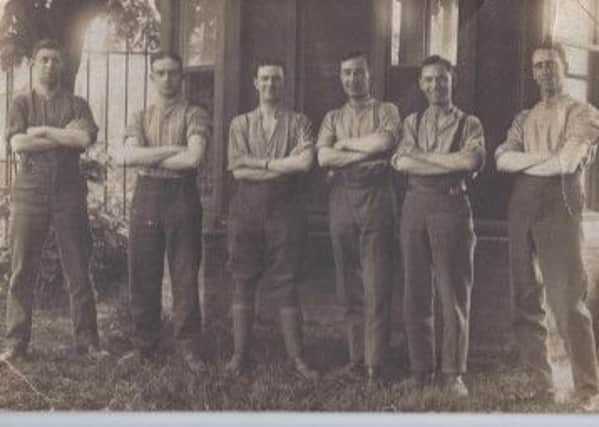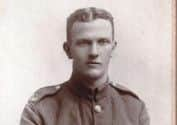Soldier’s diary reveals truth about conflict


Yet huddled in the mud-filled trenches, George William Broadhead found the time to compile a remarkable diary.
It gives an astonishing insight into life on the front line between 1915 and 1916.
Advertisement
Hide AdAdvertisement
Hide AdMr Broadhead, of Halifax Road, Batley, was a member of the 18th Battalion West Yorkshire Regiment, known as The 2nd Bradford Pals.


Having worked as a junior clerk in Batley’s gas works, he enlisted in March 1915 and was soon deployed to Egypt.
The battalion’s role was to guard the Suez Canal against the Turkish army.
After seeing little action, his team was sent to France in March 1916 as the Battle of Somme loomed.
Advertisement
Hide AdAdvertisement
Hide AdBut any excitement of war was quickly dispelled when Mr Broadhead saw the “pitiful sight” of French casualties on a hospital train near Lyon.
The battalion moved into trenches opposite the village of Serre, where they encountered torrential conditions.
Mr Broadhead said: “Still raining and trenches getting into a bad state.
“Everything wet through and my feet are in a bad way. Ration carrying at night very bad and we were floundering all over the place.
“Heavy bombardment made things look worse.”
Advertisement
Hide AdAdvertisement
Hide AdMr Broadhead’s good fortune of not going over the top was not matched by his close friends.
The Pals failed to get beyond their own front line and their trenches were subject to continuous artillery bombardment and heavy machine gun fire.
They suffered casualties of more than 400 men, which represented around 70 per cent of the battalion.
After the outbreak of the Battle of Somme, he said: “Attack opened at 7.30am. Leeds got slaughtered as soon as they got on top.
Advertisement
Hide AdAdvertisement
Hide Ad“Wounded coming up in hundreds and it was simply heartbreaking.
“Saw about 10 of our platoon’s wounded come in. Hutchinson badly wounded and Ben Parker killed. Simply murder.”
The following day, Mr Broadhead predicted there was only around 500 men of his brigade left.
“Artillery fire simply mowed them down. Much worse than anything ever seen before,” he said.
Advertisement
Hide AdAdvertisement
Hide Ad“Boys coming into Louvencourt from the trenches. Absolutely jiggered and sad over their awful losses.”
The week after the attack Mr Broadhead was made a battalion orderly room clerk.
He continued to document the conflict faced by his team.
Mr Broadhead wrote 30 Germans dressed in black surprised his troops and inflicted around 80 casualties on July 27 1916.
More than 30 soldiers were also believed to have been captured, including former Bradford City footballer Dickie Bond.
Advertisement
Hide AdAdvertisement
Hide AdAfter the war was over, Mr Broadhead joined the Imperial War Graves Commission and married a French woman.
He worked in France until his divorce in 1936, then returned to work in Batley.
His son John Broadhead, of York Court, Batley, said: “Like many of his contemporaries my father rarely spoke of the war.
“However his diary lives on and provides a rich testimony of one man’s personal experience and also of what many other ordinary soldiers endured.”